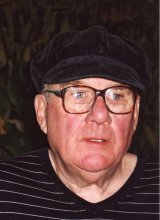Today is February 16th , 2026
FRAUD ALERT
QUEBEC
RECOMMENDATION
Books
|
Judges
'I need treatment,' pleads judge jailed for sex crimes
Suzanne Fournier
Wednesday, June 02, 2004
The Province
PRINCE GEORGE -- A gasp went through the court yesterday as a former judge who used his office to select young aboriginal girls for sex was jailed for seven years.
David William Ramsay stood ashen-faced as sentence was passed and his wife Sharon slumped forward in the front row.
"The accused used his office to elicit satisfaction of his perverted lust and to shield himself from its consequences," said B.C. Supreme Court Chief Justice Patrick Dohm, who discarded a plea bargain of four to five years agreed upon by the defence and the prosecution.
"His callousness toward these young women and his violence . . . two of whom he discarded like one might discard a pair of old shoes, justifies a sentence in the highest end of the range.
"One can hardly imagine a more infamous breach of trust."
Dohm delivered a scathing summary of Ramsay's sexual offences between July 1992 and December 2001, when Ramsay was a provincial court judge in Prince George and travelling on a circuit to remote northern communities.
Ramsay's wife winced as Dohm described some of her husband's most violent acts.
Ramsay picked up a 12-year-old Indian girl, paid her $80 for oral sex and intercourse, and then sat in judgment of her in court three months later.
Aware of her "tumultuous past," he picked her up again when she was 13 and paid her $150 to simulate aggressive sex. When she tried to escape, he told her no one would believe her word over his.
He picked up another girl four to six times, starting when she was 14, because he knew of her "fragile mental state, low self-esteem" and her traumatic past.
Ramsay tried to overpower a 15-year-old girl he'd argued with, then threw her from his car, "threatened to have her killed" and left her there, naked.
Outside court, aboriginal and women's groups said the seven-year sentence was not enough.
"This powerful man used his courtroom to pick his victims, stalked them on the streets and terrorized them for at least a decade that we know about and for this he will serve less than three years in jail," said Kukdookaa Terri Brown, the Ottawa-based president of the Native Women's Association of Canada.
Soowahlie Chief Doug Kelly, chairman of the First Nations Summit health committee, said: "The Prince George legal community closed ranks to speak up for this man after he preyed upon children with impunity here for years."
Clarie Johnson, speaking for a coalition of Prince George women's groups, applauded the "courage of these young women" who came forward against a powerful figure.
"Sexual exploitation of children is not prostitution," she said.
Ramsay ran a gauntlet of furious cries of "criminal" and "child molester" as he entered court earlier in the day.
He was portrayed by his lawyer, Leonard Doust, as a compassionate man who taught school, became a lawyer and then a lenient judge who himself deserved leniency.
Ramsay had even helped out at a halfway home for troubled youth and safe houses for women, Doust said.
Doust said it was just a "coincidence" that all Ramsay's victims were aboriginal and that he could not "be held personally responsible as the only one who took advantage" of or "singlehandedly . . . hardened and disillusioned" his victims.
Doust said Ramsay didn't "select" his victims "because of their heritage" nor was he racially motivated.
Lee Lakeman, of the Canadian Association of Sexual Assault Centres, responded outside court: "It's the 'damaged goods' defence that is always raised in sexual assault cases. Even though Ramsay preyed on girls as young as 12, we're supposed to believe he's not responsible because someone else abused them first.
"He was privy to information about the most vulnerable youth and knew just how to exploit young native victims.
"The systemic racism in this case is appalling and to suggest it was all just coincidence is astounding."
Doust said forensic psychiatrist Dr. Derrick Eaves diagnosed Ramsay not as a pedophile, but as a person who chose post-pubertal adolescents for sex and therefore could be treated.
Doust said Ramsay was only able to admit his guilt to his wife "a week prior to his guilty plea," although "his shame and humiliation" led him to attempt suicide on Sept. 6, 2002.
Ramsay drank antifreeze and pesticides mixed in orange juice, but was found by his wife in time and spent 12 days in hospital.
Doust insisted Ramsay only admitted his guilt to his wife and four adult children in April, two years after he was charged and a week before he pleaded guilty to sexual assault causing bodily harm, breach of trust and three counts of buying sex from a person under 18.
But The Province has learned that he transferred his interest in a large, riverside Prince George lot and home to his wife on Oct. 18, 2002, for the sum of $1 and what he called on the real-estate documents "natural love and affection."
Ramsay's victims could sue him.
After his lawyer's plea for clemency, Ramsay stood and apologized in a quiet voice to his victims, his family and the legal community.
He said he was "at a loss to explain . . . how I could work so hard in all other aspects of my life and yet fail . . . and lead to such disgrace."
He turned slightly in the direction of his young victims and said he wished he could "take away the pain and indignity which I contributed to their lives."
He said he hoped his guilty plea and sentence would help them heal.
His lengthiest apologies were reserved for the sheriffs, lawyers and judges in the legal system that "I brought into disrepute," and concluded by saying that he would accept his punishment.
"I need treatment and I look forward to receiving it," he said.
--------------------------------------------------
Ex-judge Ramsay dies in jail
Jennifer Saltman
The Province
Sunday, January 20, 2008
David William Ramsay, the former Prince George Provincial Court judge who used his influence to prey on young girls, has died.
Mike Leger, correctional manager at the Dorchester, N.B., penitentiary where Ramsay was being held, confirmed that Ramsay died sometime yesterday morning.
"As far as cause of death or anything like that, I can't say," he said.
However, it was revealed at a parole board hearing in September that Ramsay was dying from cancer and had about two years to live.
Ramsay pleaded guilty on May 3, 2004, to sexual assault causing bodily harm, breach of trust and three counts of buying sex from a person under 18. The offences took place between 1992 and 2001.
His victims, mostly aboriginal girls living in poverty and in trouble with the law, were subjected to acts of escalating sexual violence. Some were as young as 12 years old.
In June 2004, Ramsay was sentenced to seven years in jail.
"The accused used his office to elicit satisfaction of his perverted lust and to shield himself from its consequences," said B.C. Supreme Court Chief Justice Patrick Dohm, during sentencing
Ramsay applied for day parole in August 2007 at age 64, scarcely more than three years after his sentence.
In their decision, National Parole Board members called Ramsay "an untreated sexual offender" who poses too much risk to release despite his begging for day parole "on humanitarian grounds" because of his cancer.
Ramsay was due for statutory release, after serving two-thirds of his sentence, in January 2009.
[email protected]
� The Vancouver Province 2008
-----------------------------------------------
Then there is Judge Drew Stymiest:
Convicted Judge Weeps in Miramichi Court
Last updated Mar 30 2006 08:42 AM AST
CBC New
Four men convicted of defrauding the Miramichi hospital of nearly $1 million made emotional speeches to a crammed courtroom during their sentencing hearing on Wednesday.
The men will learn their fate on Friday, when Justice Stephen McNally will decide whether to send the men to jail or allow them to serve their setences in the community.
The men, including former provincial court judge Drew Stymiest and three hospital executives, are guilty of 39 counts of fraud and breach of trust in a scheme that diverted cash away from the hospital through a scheme of shell companies, double-billing, inflated bonuses and kickbacks.
The men took the money at a time when the Miramichi hospital was struggling financially, and leaning heavily on the community for support.
� FROM MARCH 27, 2006: Miramichi hopes to honour hospital hero.
Each man apologized to the people in the courtroom, some of whom took time off work to watch the proceedings.
The former judge is convicted of the most counts and dissolved into tears as he addressed the 100 people who jammed into the courthouse's largest courtroom.
Miramichi resident Derrick Berry rearranged his work schedule to watch the men face justice, and says he doesn't believe they are really sorry for what they did. "I wouldn't think they were very sincere. I mean, they all pleaded not guilty. They all took deliberate steps to hide what they did. "
Hospital board member Peggy Doyle has followed the case since police laid charges. She says the men might be sorry, but only because they got caught. "I think, after spending 51 days incarcerated already, that today they are probably very sorry for what they did."
Crown prosecutor Mark Scott is asking for five- to six-year prison sentences for the former judge and the former CEO John Tucker, and two- to three-year prison terms for Ian Jamieson and Darrel Doucette. He is also asking for the men to pay restitution for the money they took.
The defence lawyers all argued that the men should serve their sentences in the community. Each one said his client is a man of good character with no prior convictions. The judge will give his decision Friday afternoon.
|
Paul H.Cody

ACCOUNTABILITY
RESOURCES
LEGAL ABUSE SYNDROME
|


